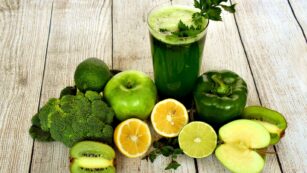Mold exposure can be more than just a household nuisance; it poses significant health risks that often go unnoticed. From respiratory issues to chronic fatigue, the effects of mold toxicity can be debilitating. Understanding how to detox the body from mold is crucial for those seeking relief and a return to optimal health.
The human body has a remarkable ability to heal itself, but sometimes it needs a little help. Detoxifying from mold involves a combination of lifestyle changes, dietary adjustments, and natural supplements. This process not only aids in removing toxins but also strengthens the body’s defenses against future exposure.
How to Detox Body From Mold
 Detoxing from mold begins with environment assessment and remediation. Individuals should ensure their living and working spaces are free from mold growth. Using dehumidifiers and maintaining proper ventilation can significantly reduce mold presence.
Detoxing from mold begins with environment assessment and remediation. Individuals should ensure their living and working spaces are free from mold growth. Using dehumidifiers and maintaining proper ventilation can significantly reduce mold presence.
Dietary changes play a crucial role. They should consume foods rich in antioxidants like berries and leafy greens as these help eliminate toxins. Incorporating fermented foods like yogurt and kimchi supports gut health and improves immune response.
Hydration is essential for toxin expulsion. Drinking plenty of water aids in flushing out mold toxins efficiently. Herbal teas, particularly those containing ginger and turmeric, also support the detox process by reducing inflammation.
Supplements can enhance detoxification. Activated charcoal binds to toxins for their removal, while glutathione boosts the liver’s detox functions. It’s important to consult a healthcare provider before initiating any supplement regimen.
Regular physical activity aids detoxification. Exercise increases circulation, promoting the removal of toxins. Activities like yoga and brisk walking are gentle and effective options.
Symptoms of Mold Toxicity
 Mold toxicity results from prolonged exposure to mold spores, which can trigger various health issues. Common symptoms include respiratory problems such as coughing, wheezing, and nasal congestion. These symptoms occur due to mold spores irritating the respiratory tract.
Mold toxicity results from prolonged exposure to mold spores, which can trigger various health issues. Common symptoms include respiratory problems such as coughing, wheezing, and nasal congestion. These symptoms occur due to mold spores irritating the respiratory tract.
Individuals may also experience chronic fatigue and weakness. The body’s constant battle against mold toxins often results in persistent tiredness. Headaches and migraines are frequent, caused by inflammation and irritants affecting the brain.
Cognitive difficulties like memory loss and confusion can arise. Mold toxins impact brain function, leading to these cognitive symptoms. Skin reactions, including rashes and itching, frequently occur when the skin comes into contact with mold.address it.
Natural Detox Methods
 Detoxifying from mold naturally incorporates dietary changes, supplements, exercise, and sweating. These methods support cleansing the body and enhancing its defenses against mold toxins. Consuming antioxidant-rich foods helps combat oxidative stress induced by mold exposure. Foods like berries, leafy greens, and nuts provide essential nutrients. Incorporating fermented foods such as yogurt and sauerkraut promotes gut health, which is crucial in the detoxification process. Staying hydrated by drinking plenty of water aids in flushing out toxins efficiently.
Detoxifying from mold naturally incorporates dietary changes, supplements, exercise, and sweating. These methods support cleansing the body and enhancing its defenses against mold toxins. Consuming antioxidant-rich foods helps combat oxidative stress induced by mold exposure. Foods like berries, leafy greens, and nuts provide essential nutrients. Incorporating fermented foods such as yogurt and sauerkraut promotes gut health, which is crucial in the detoxification process. Staying hydrated by drinking plenty of water aids in flushing out toxins efficiently.
Certain supplements enhance the body’s ability to detox from mold. Activated charcoal binds to mold toxins, facilitating their removal from the body. Glutathione, a powerful antioxidant, supports liver function and helps neutralize harmful substances. Consulting a healthcare provider is advisable before incorporating these supplements to ensure safety and effectiveness.
Medical Treatments
Prescription Options
Prescription medications can aid in managing mold-related symptoms. Antifungal drugs may be prescribed to address fungal infections resulting from mold exposure. Nasal sprays containing corticosteroids help reduce inflammation and alleviate respiratory issues. In some cases, doctors prescribe antihistamines to manage allergic reactions triggered by mold. Healthcare providers consider these options after evaluating symptoms and medical history.
Professional guidance is essential for diagnosing and treating mold toxicity. Environmental medicine specialists offer comprehensive assessments of mold exposure and its impact on health. They conduct various tests, including blood tests and urine analyses, to identify mold toxins in the body. Based on the findings, specialists recommend targeted detox strategies, ensuring a personalized and effective treatment plan.
Lifestyle Adjustments
Adopting a comprehensive approach to detoxifying the body from mold can significantly improve one’s health and resilience against future exposure. By making informed lifestyle adjustments, individuals can not only address mold-related symptoms but also enhance their overall well-being. It’s crucial to combine environmental remediation with dietary changes, regular exercise, and stress management techniques to support the body’s natural detoxification processes. Consulting with healthcare professionals ensures that any interventions are safe and effective, tailored to individual needs.



